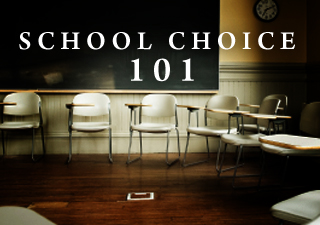Media

Philly Experiment Shows Charter School Promise
Philadelphia schools have long battled declining student achievement, sky-rocketing violence, and unsustainable spending levels. Yet, several turn-around schools have managed to overcome this bleak educational trajectory and should serve as a model for further reforms.
Pennsylvania Independent’s Maura Pennington examines the striking consequences of Philadelphia School District’s 2010 experiment in reforming its lowest performing schools. The district employed two models: district-managed Promise Academies and privately-operated Renaissance Charter Schools.
The outcome? In short, things worsened for district-run schools, but the Renaissance Charter alternatives are showing improvement.
The latest report shows that the district’s Promise Academies lacked proper oversight and clarity as they sought to hire new staff and enforce a uniform dress code. One major hurdle they could not overcome was seniority requirements, which led to major staffing problems. And the district’s fiscal mismanagement led to funding decreases that severed the cornerstone of the reform—greater student instruction time.
At this point, three district-run Promise Academy high schools have closed, and in those that remain, academic performance sits below the district average.
Renaissance Charter Schools—free from seniority requirements and other bureaucratic restrictions—managed to surmount the same obstacles and forge a path to success. When implementing new policies and procedures, they were governed by specific missions and goals and, consequently, achieved, according to one Renaissance Charter parent, “more order, organization, safer learning environment and a mutually agreed upon commitment from the staff at all levels.”
The benefits are tangible:
- Decreased violence. At Young Scholars Frederick Douglass Charter School, serious safety incidents plummeted from 23.86 per 100 students in 2008-09 to .61 in 2010.
- Increased academic achievement: Grover Cleveland Mastery Charter School gained 10 percentage points in reading and math proficiency one year after the change.
With such stark results and parental support, Philadelphia should look to the charter model of reform to take its failing schools to the next level.